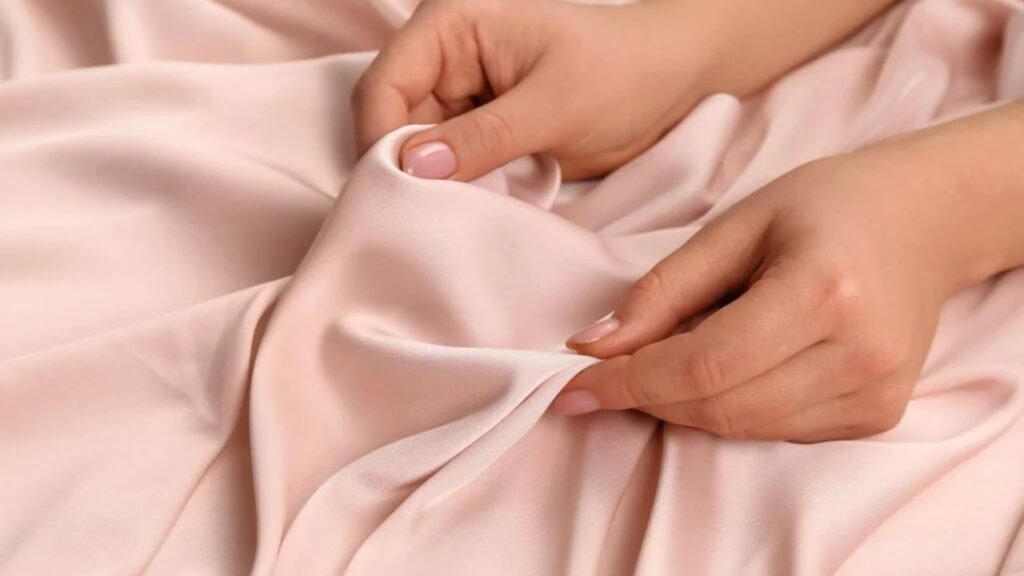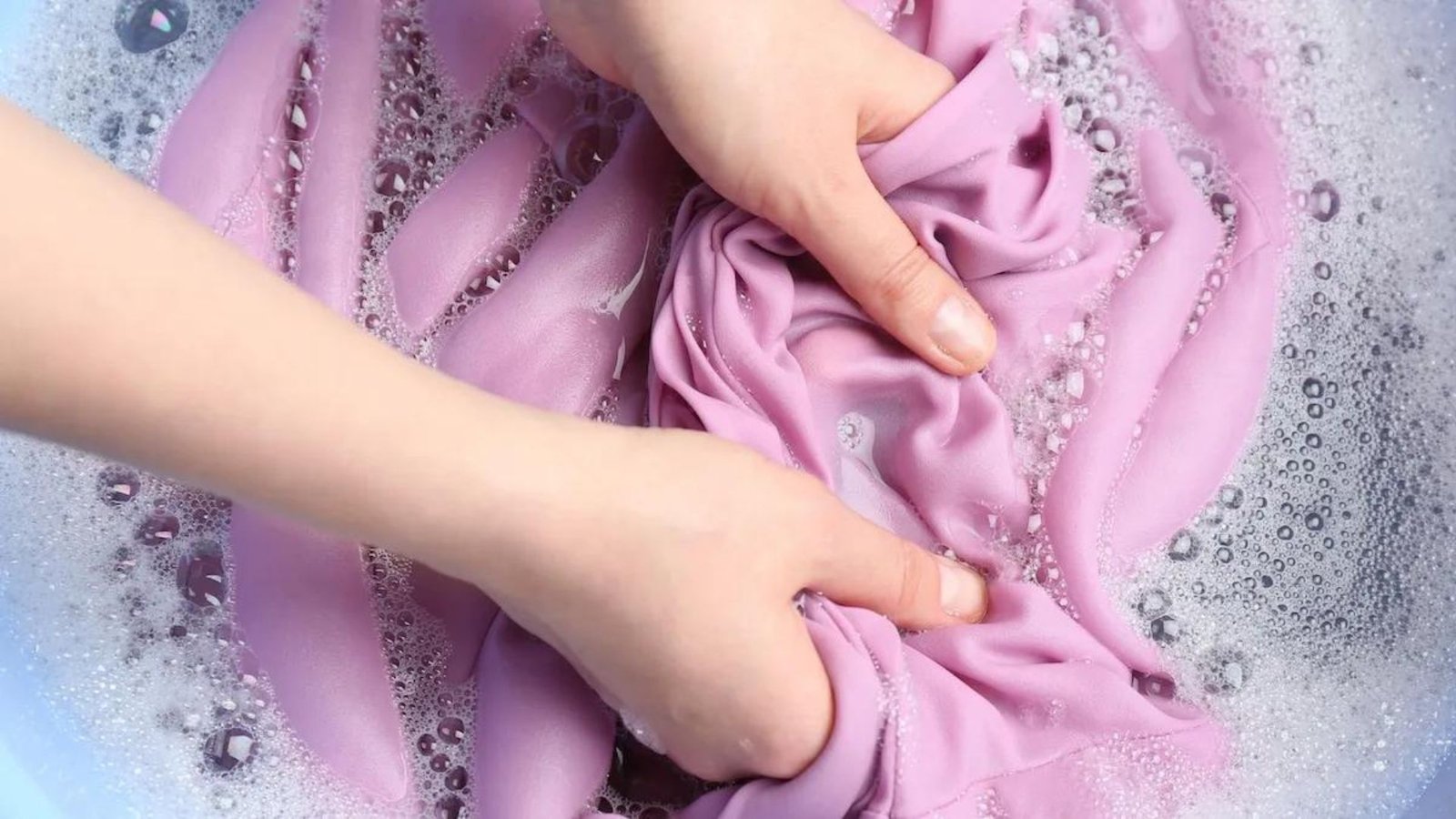Delicate clothes require special attention to maintain their beauty and extend their lifespan. Fabrics like silk, lace, and fine wool can easily be damaged if not properly cared for. Follow these practical tips to ensure your delicate garments stay in top condition.

1. Read the Care Labels
Understand Fabric Requirements
The first step in caring for delicate clothes is to check the care labels. These labels provide essential information about the fabric and the best way to clean and maintain it.
Key Points
- Washing Instructions: Follow specific washing instructions such as cold water only or hand wash.
- Drying Instructions: Note whether the item should be air-dried or laid flat.
- Ironing Instructions: Check for any special ironing requirements.
Why It’s Important
Care labels give you precise instructions to avoid damaging the fabric, ensuring that your delicate clothes remain in good condition.
2. Hand Wash When Possible
Gentle Cleaning
Hand washing is often recommended for delicate fabrics. This method is gentler than machine washing and helps prevent wear and tear.
Steps for Hand Washing
- Use Cold Water: Fill a basin with cold water and add a mild detergent designed for delicates.
- Gently Agitate: Submerge the garment and gently agitate the water. Avoid wringing or twisting the fabric.
- Rinse Thoroughly: Rinse the garment with cool water until the detergent is completely removed.
Why It’s Important
Hand washing minimizes the risk of damage from agitation and harsh detergents, helping to preserve the fabric’s integrity.
3. Choose the Right Detergent
Fabric-Safe Products
Use a mild detergent specifically designed for delicate fabrics. Regular laundry detergents can be too harsh and may cause damage.
Key Features to Look For
- Mild Formulation: Choose detergents labeled as gentle or for delicates.
- No Enzymes or Bleach: Avoid products containing enzymes or bleach, which can weaken fibers.
Why It’s Important
Using the right detergent ensures that delicate fabrics are cleaned effectively without causing damage.
4. Use a Mesh Laundry Bag
Protect Your Garments
When machine washing delicate items, place them in a mesh laundry bag. This helps protect the fabric from snagging and abrasion.
How to Use
- Place Garment in Bag: Put the delicate item into the mesh bag.
- Secure the Bag: Close the bag tightly to prevent items from falling out.
Why It’s Important
A mesh laundry bag provides an extra layer of protection during machine washing, reducing the risk of damage.
5. Air Dry Carefully
Proper Drying Techniques
Delicate clothes should be air-dried to avoid the heat and agitation of a dryer, which can cause shrinkage and damage.
Steps for Air Drying
- Lay Flat: Lay delicate items flat on a clean, dry towel or a drying rack to dry. For items like sweaters, reshape them to their original form to prevent stretching.
- Avoid Direct Sunlight: Dry clothes away from direct sunlight to prevent fading.
Why It’s Important
Air drying reduces the risk of heat damage and helps maintain the shape and texture of delicate fabrics.
6. Iron with Care
Proper Ironing Techniques
If ironing is necessary, take extra precautions to avoid damaging delicate fabrics. Always check the care label for specific ironing instructions.
Ironing Tips
- Low Heat: Use the lowest heat setting on your iron and avoid steam.
- Use a Pressing Cloth: Place a pressing cloth between the iron and the fabric to protect it from direct heat.
- Iron Inside Out: Iron garments inside out to prevent shine and damage to the outer surface.
Why It’s Important
Careful ironing helps maintain the fabric’s appearance without causing heat damage or unwanted marks.
7. Store Delicate Clothes Properly
Safe Storage Practices
Proper storage is essential for keeping delicate clothes in good condition. Use suitable storage methods to protect your garments from damage.
Storage Tips
- Use Breathable Garment Bags: Store delicate items in breathable garment bags to protect them from dust and moisture.
- Avoid Hangers: Use padded hangers or fold items to avoid stretching or distortion.
- Keep Away from Sunlight: Store clothes in a cool, dark place to prevent fading.
Why It’s Important
Proper storage helps protect delicate clothes from environmental factors and physical damage, extending their lifespan.
8. Spot Clean Stains
Immediate Action
For minor stains, spot cleaning is often sufficient and less damaging than a full wash.
Spot Cleaning Steps
- Blot the Stain: Gently blot the stain with a clean cloth to absorb excess liquid.
- Apply a Mild Cleaner: Use a small amount of mild detergent or stain remover suitable for delicates.
- Rinse Gently: Rinse the area with cold water and gently blot dry.
Why It’s Important
Spot cleaning helps address stains promptly without subjecting the entire garment to washing, which can be harsh on delicate fabrics.
9. Avoid Overloading the Washing Machine
Safe Washing Practices
Overloading the washing machine can cause excessive friction and damage to delicate items.
Washing Tips
- Wash in Small Batches: Wash delicate items in smaller loads to ensure they have enough space to move freely.
- Use Gentle Cycles: Select the gentle or delicate cycle on your washing machine to minimize agitation.
Why It’s Important
Washing in smaller batches and using gentle cycles reduce the risk of damage from friction and agitation.
10. Regular Maintenance
Routine Care
Regular maintenance and proper care practices help keep delicate clothes in good condition over time.
Maintenance Tips
- Check for Wear: Regularly inspect delicate clothes for signs of wear or damage.
- Handle with Care: Always handle delicate items gently to avoid snags and tears.
Why It’s Important
Ongoing care and regular checks help prevent minor issues from becoming major problems, keeping your delicate clothes looking their best.
Conclusion
In summary, caring for delicate clothes involves understanding fabric requirements, using gentle cleaning methods, and employing proper storage techniques. By following these tips, you can keep your delicate garments in excellent condition and enjoy their beauty and comfort for years to come.




